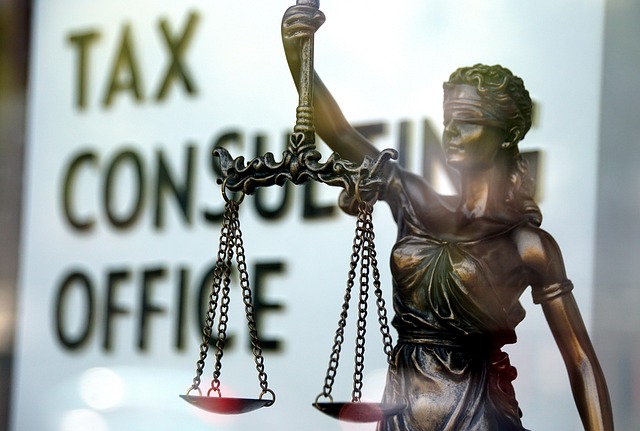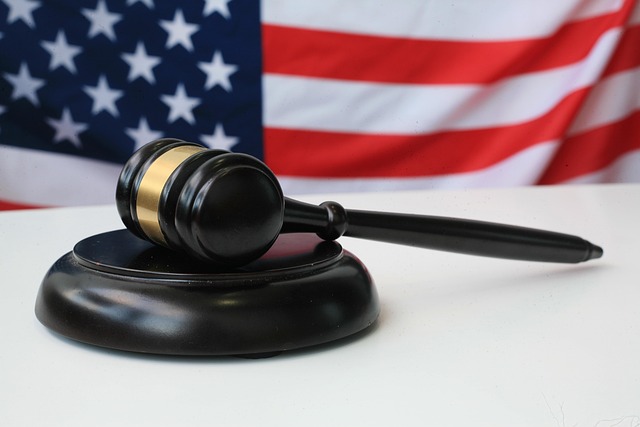Navigating plea bargains in felony cases is a strategic process where defendants and prosecutors negotiate terms to avoid trial. Attorneys guide clients through rights, strategies, and potential outcomes, aiming for reduced sentences or charge dismissal. This balances the defendant's desire for innocence preservation with swift justice, considering evidence strength, criminal history, and legal discrétion. While plea bargains offer resolution, critics worry about unprosecuted crimes and accountability.
Navigating Plea Bargains in Felony Cases is a complex process with significant implications for both individuals and the criminal justice system. This article delves into the intricacies of understanding plea bargains, exploring benefits and drawbacks, and examining the crucial roles played by prosecutors and defense attorneys. We analyze factors influencing negotiations and dissect the broader consequences for the criminal justice landscape. By the end, readers will grasp the delicate balance between fairness and efficiency in felony cases.
- Understanding Plea Bargain Process in Felony Cases
- Benefits and Drawbacks of Plea Agreements
- The Role of Prosecutors and Defense Attorneys
- Factors Influencing Plea Bargain Negotiations
- Consequences and Impact on Criminal Justice System
Understanding Plea Bargain Process in Felony Cases

Navigating the plea bargain process in felony cases is a crucial aspect of criminal law enforcement that can significantly impact the outcome for both defendants and prosecutors. This strategic negotiation allows for an alternative resolution to trial, offering a potential path to achieving extraordinary results. In many instances, especially with white-collar and economic crimes, plea bargains are used to secure cooperative testimony or admit guilt in exchange for reduced sentences or complete dismissal of all charges.
The process involves several steps: the defendant considers their options, including pleading guilty or going to trial; prosecutors weigh the strength of their case and potential consequences; then, both parties come together to agree on terms. This negotiation must be carefully managed to ensure a fair outcome. An attorney’s guidance is vital in these cases, as they can help clients understand their rights, navigate complex legal strategies, and ultimately achieve the best possible result, whether that’s minimizing punishment or securing the complete dismissal of charges.
Benefits and Drawbacks of Plea Agreements

Navigating Plea bargains in Felony Cases can be a complex and delicate process, offering both strategic advantages and potential pitfalls for defendants and their legal representatives. One of the primary benefits is the opportunity to secure a reduced sentence or a plea deal that results in the complete dismissal of all charges. This approach can be particularly advantageous when facing severe felony accusations, allowing individuals to avoid lengthy prison terms or the stigma associated with a criminal conviction. Plea agreements provide a level of certainty and control over the outcome, as defendants can often negotiate specific terms tailored to their unique circumstances.
However, there are drawbacks to consider. Accepting a plea bargain may result in a guilty verdict from the jury, even if the defendant maintains their innocence. This compromise could impact future opportunities, such as professional licensing or certain civil rights. Moreover, while a successful plea deal can offer relief, it also means forgoing the chance for a winning challenging defense verdict and the potential for acquittal. Therefore, defendants must carefully weigh the benefits of a reduced sentence or charge dismissal against the possibility of preserving their innocence and securing a complete clearance of all charges.
The Role of Prosecutors and Defense Attorneys

In criminal law enforcement, prosecutors and defense attorneys play pivotal roles in ensuring a fair and just legal process. Prosecutors are responsible for initiating and pursuing criminal charges against individuals accused of committing felonies or other serious offenses. They navigate the complexities of the law to build strong cases, conduct investigations, and present evidence in court. Their primary goal is to secure justice by winning challenging defense verdicts while upholding the integrity of the legal system.
Defense attorneys, on the other hand, represent the accused individuals, often fighting for their rights and freedom. They delve into the specifics of each case, examining evidence, identifying weaknesses, and constructing compelling arguments. In navigating plea bargains in felony cases, both prosecutors and defense attorneys work collaboratively or adversarily to reach agreements that can result in reduced charges or sentences. This process requires strategic thinking, negotiation skills, and a deep understanding of both the law and the respective business involved, whether it’s a white-collar defense or any other specialized area.
Factors Influencing Plea Bargain Negotiations

Navigating plea bargain negotiations in felony cases is a complex process influenced by multiple factors. For his clients, the primary goal often revolves around avoiding a jury trial and the potential consequences of a guilty verdict. This strategy involves striking a balance between accepting a reduced charge or sentence and securing the best possible outcome. Several key elements play a significant role in these negotiations: the strength of the evidence against the defendant, the severity of the original charge, and the discretion of both the prosecutor and judge.
The process also considers the defendant’s prior criminal history, potential for rehabilitation, and any extenuating circumstances surrounding the crime. Prosecutors weigh these factors to determine whether a plea bargain is in their interest as well, aiming to secure convictions while managing case loads and resources. By carefully evaluating these aspects, defendants and their legal representatives can navigate plea bargain negotiations effectively, potentially leading to reduced charges or sentences and avoiding the stress and uncertainty of jury trials.
Consequences and Impact on Criminal Justice System

The consequences of Navigating Plea Bargains in Felony Cases can significantly impact the criminal justice system. When defendants accept plea bargains, they often face reduced charges and sentences compared to a potential conviction after trial. This practice can lead to an unprecedented track record of successful outcomes for his clients, who may benefit from less time served and more favorable terms. However, critics argue that it can also result in a lack of accountability, as some crimes may go unprosecuted or unduly minimized.
Plea bargains play a crucial role in managing the overwhelming caseloads that plague many court systems. By agreeing to plea deals, prosecutors and judges can streamline the process, ensuring cases are resolved more efficiently. This is particularly important during all stages of the investigative and enforcement process, where timely resolution can prevent the victims from suffering further delays and trauma. Nevertheless, striking the right balance between swift justice and due process remains a complex challenge within the criminal justice system.
Navigating plea bargains in felony cases is a complex process with significant implications for both individuals and the criminal justice system. Understanding the dynamics between prosecutors and defense attorneys, as well as the factors influencing these negotiations, is crucial to appreciating the benefits and drawbacks of plea agreements. By examining these elements, we can better comprehend how plea bargains shape outcomes within the criminal justice system and ensure fairness for all involved parties.






